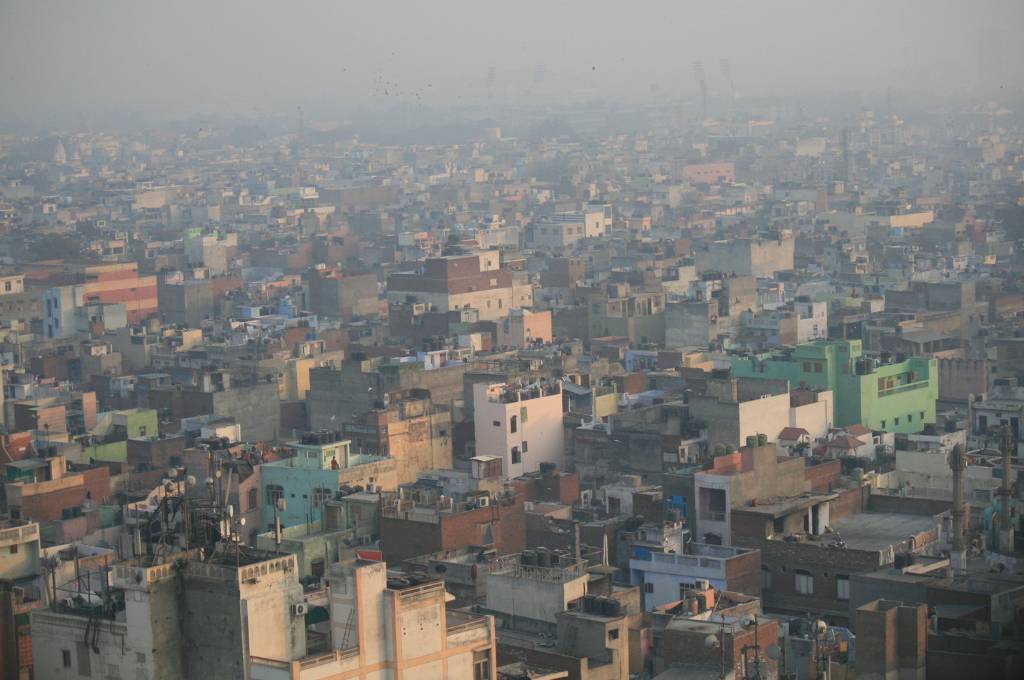As air pollution levels surge in Delhi and other metros in India, outdoor workers bear the brunt of its harsh effects. Among these workers, waste pickers, safai karamcharis (sweepers contracted by municipal bodies), and security guards are most frequently exposed to pollutants such as dust, waste, and toxic gases throughout their work hours. Apart from the demands of their professions, the combination of intergenerational poverty and limited access to a healthy lifestyle and healthcare renders this demographic especially susceptible to the detrimental consequences of air pollution. The absence of effective countermeasures further exacerbates this situation.
To determine the extent of the impact of air pollution on these occupations, Chintan conducted a survey of 400 participants—constituting safai karamcharis, waste pickers, and security guards—across 15 sites in Delhi. The findings of this survey have been published in a report titled Unfair Quality: The Impact of Air Pollution on Three Occupations. The report uncovers that 97 percent safai karamcharis, 95 percent waste pickers, and 82 percent security guards are prone to exposure to air pollution during work.
Highlighted below are some of the solutions put forth by the report to combat this.
1. Workers need accessible PPEs
The report outlines that approximately 61 percent safai karamcharis, 52 percent waste pickers, and 30 percent security guards are unaware of personal protective equipment (PPE) gear. More than half of these workers also report not having access to them. In the absence of these kits, many workers use a gamchha (cotton cloth) to cover their face and head, but this is not always helpful.
These occupations also subject workers to various other pollutants. For instance, during colder seasons, many workers resort to burning wood or coal to keep warm. However, this practice releases harmful toxins that can amplify respiratory issues and even contribute to cancer. Without PPE kits, the health issues experienced by these workers such as burning of eyes, cough, headache, and breathing problems can worsen. The study revealed that even where PPE is available, there are no incentives in place to promote its use among these groups, highlighting the necessity for additional measures to encourage compliance in this regard.
2. Workers should have access to healthcare
Although majority of the workers are aware of these health hazards, they find themselves compelled to persist in order to ensure financial security. This is particularly concerning for waste pickers, 87 percent of whom report suffering from various ailments since they started their current role. Forty-seven percent of safai karamcharis and 45 percent of security guards also report experiencing migraines, chest discomfort, and respiratory problems since commencing their duties.
Chintan conducted a pulmonary function test (PFT) to learn about the lung health of these workers and found that they suffered from decreased lung capacity when compared to indoor workers. Only 25 percent waste pickers, 14 percent safai karamcharis, and 14 percent security guards exhibited normal lung function. The study also concluded that women’s lung capacities have deteriorated more in comparison to men in all three occupations. Women waste pickers, for instance, are 3.9 times more likely than their male counterparts to have a respiratory disease.
Despite this, healthcare facilities remain inadequate. More than half of the workers surveyed expressed concerns about the lack of appropriate healthcare provisions, and a significant majority cannot avail routine annual health check-ups. Therefore, the need to improve healthcare access becomes imperative.

3. Organisations must promote healthy practices
In addition to offering healthcare provisions, workplaces can also include hand- and face-washing facilities. Gargling in the morning and at night, before and after work, can serve as an effective strategy to minimise the retention of dust particles within the throat and nasal passages.
4. Outside exposure needs to be limited
To safeguard the health of these workers, one of the most crucial steps is to minimise their exposure to pollutants. For safai karamcharis, this can be ensured by shifting their work timings from early in the morning to later in the day when pollution levels are not as high. Sweeping should be avoided when the air quality index (AQI) touches a hazardous level. Security guards must be provided with enclosed spaces to sit. For both, rotation in duty from high-pollution spots to low-pollution areas must be undertaken to avoid long-term exposure. And to prevent waste workers from burning waste in the winter, free gas cylinders should be made available. Dry waste collection centres must also be well ventilated. Waste burning should be monitored and heavily discouraged.
5. Systemic-level shifts are necessary
Although increasing healthcare access, limiting exposure, and promoting the use of PPE and healthy practices can aid in mitigating the impact of air pollution on these workers, achieving long-term sustainability in protecting them necessitates a broader systemic transformation.
- Waste pickers: Waste pickers should be empowered to explore alternative forms of recycling, such as doorstep collection or composting, rather than limiting their work to landfills. Garbage burning must be banned and any organisations or individuals partaking in it must be fined. This is particularly relevant for horticulture waste management. Investments must be made in wet waste composting to prevent landfill fires.
- Security guards: To prioritise the well-being of security personnel working in cities with an AQI higher than 300, it is crucial to offer discounts to organisations that can purchase kiosks for them. This initiative is particularly significant for security guards operating in construction sites, schools, or low-income areas.
- Safai karamcharis: In situations where the AQI exceeds 250, it is crucial to implement measures like spraying mist to mitigate the dispersal of rising dust. To prevent open burning of used tires and e-waste, adequate collection systems should be put in place. This will also increase recycling rates.
Occupational health protection guidelines should be established and enforced by relevant bodies such as the Pollution Control Board and prioritised by programmes like the Swachh Bharat Mission. These guidelines must be integrated into the practices and policies of organisations involved in all three occupations to ensure the well-being and safety of workers.
Continued exposure to pollutants, coupled with socio-economic challenges, magnifies the damaging impact of air pollution on workers from these occupational groups. Addressing these issues requires a multi-pronged approach, including improved occupational safeguards, enhanced access to healthcare and education, and rigorous air quality management measures.
Komal Daal from Chintan; Dr Randeep Guleria, former director of AIIMS; and Dr Tejas Menon Suri, Assistant Professor, Department of Pulmonary, Critical Care, and Sleep Medicine at AIIMS, also contributed to this study.
—






